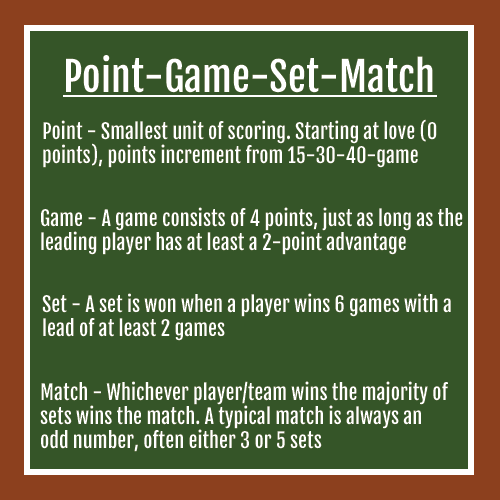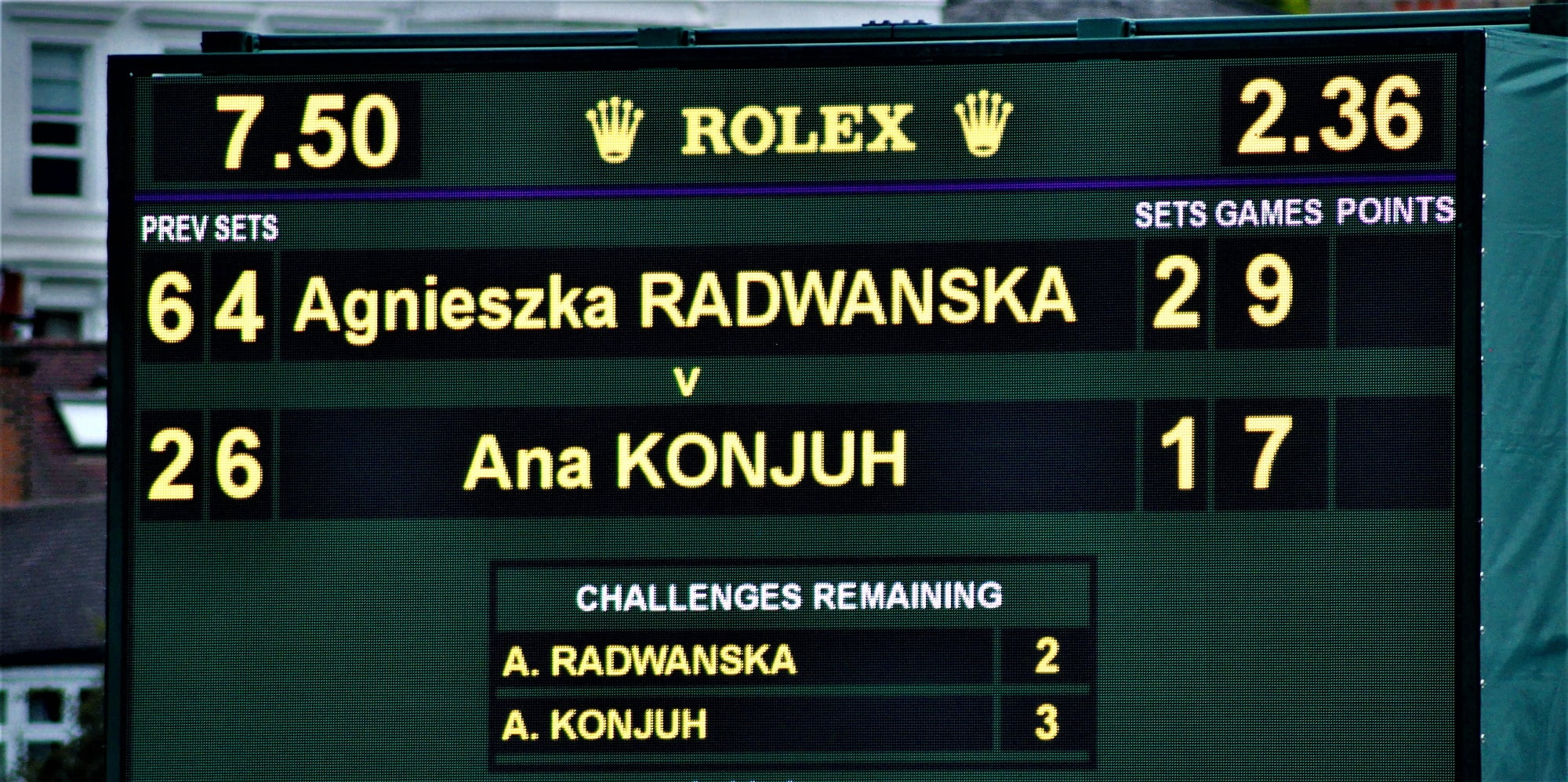WEIRD TENNIS RULES | Whether you are just a Tennis newbie who wants to understand who’s winning in a tennis match or you’re an enthusiast just starting off playing matches of your own, it’s important to know the official Tennis scoring system and the various terms that are a part of it.
Confusion here can spoil the fun of watching the game because you have no idea what is going on. So, today we’ll be going over the different components of the Tennis scoring system, specifically for the singles game, including how to score Tennis matches with an example.
Tennis Scoring System

The Tennis scoring system is quite different from other internationally popular sports. While most other sports use “points/units” for scoring, Tennis plays with mathematics in ways that is not very obvious or intuitive in any way, to the average spectator.
Not only that, but the Tennis scoring system does not allow for ties. You either win or you lose.
Match Scoring:

Game Scoring
This is where things get a little complicated. First person to win 4 points wins the game. If the score is tied at 4 points each, the player must win by scoring 2 successive points, no matter how long it takes. The terminology for Tennis game scoring goes like this:
Point 0 is called Love.
Point 1 is called 15.
2nd Point is called 30.
Point 3 is called 40.
And at Point 4 a game is over UNLESS it is tied,
Tied games are called Deuce.
Winning by one is called Ad.
PS: When calling the score you say the server’s score first.
Set scoring:
A set is won by the first player/team to win 6 games. Players alternate between serving and returning every game, and most matches either use one of two set formats:
Advantage Set:
The player or team must win at least 6 games with a 2-game advantage over their opponent(s). The set continues until a player/team wins the set by at least 2 games. This is used in deciding sets at the grand slams, except for the US Open.
Tie-Break Set:
The player or team must win at least 6 games with a 2-game advantage over their opponent(s). If a score of 6-6 is reached, a tie-break game is played to determine the winner. A player must score a set amount of points (typically 7, 8, or 10 points) with at least a 2 point lead in order to win the tie-break game and set. Especially useful in Tour level tournaments because it helps to determine the winner on schedule.
‘Love’ is in the air (Seriously, we don’t know)
There’s no definitive reason we say “love” for zero in tennis. Some think it comes from the French expression “l’oeuf” as in “egg” meaning zero. There’s also the chance it came from the Dutch expression “iets voor lof doen,” which translates to something like “there’s no stake in the game.”
Also read: 5 Greatest Serve-Bots From The Tennis World
The ball bounces back over the net before you could hit it?
If the spin or wind brings the ball back over the net, then you must hit the ball in order to win the point even if that means reaching over the net to put the shot away. If you fail to touch the ball, then the player who hit the spin shot wins the point. Just be careful not to touch the net or your opponent’s side of the court or you lose the point.
Who wins the point if the opponent swings his racket over the net?
As long as he hit the ball before his racquet swung over the net, the shot is considered legal. This can be a hard one to judge unless he’s clearly reaching over the net to put the shot away.
These are just a few examples of Tennis terminology that scares away newbies who tune into the sport occasionally on TV. If you are one of them, this will hopefully help you connect better with the game and develop the Tennis spirit.
Check out: 5 Basic Tennis Shots You Can Learn During This Holiday




